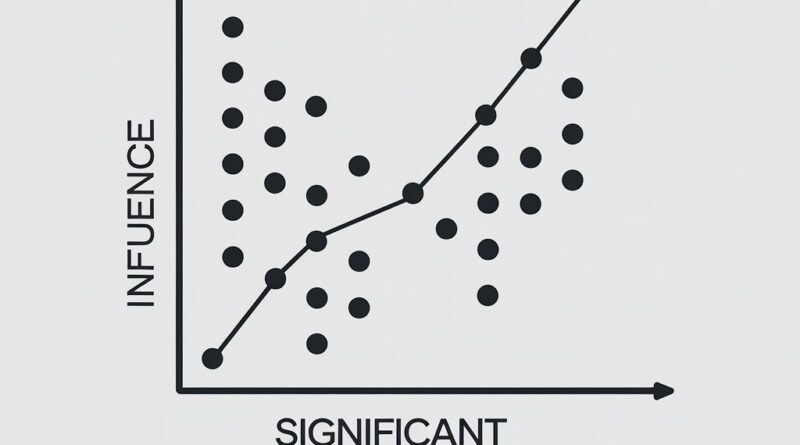Habit Influence over Our Significant Conversations
Discussions become a part of life and business. But not all discourse is equal. Some are more important than others in that they can alter the way humans interact among themselves or promote teamwork and, therefore, influence decisions. We refer to such discussions as pivotal because they occur at critical points in time when stakes are high, points of view tend to diverge, and feelings run high.
In all these major conversations, it is a must to understand human behavior. Let me present to you the book “The Power of Habit” by Charles Duhigg. A work that drills deeper into the science of habits and the power they have over our lives. While it did not cover conversations, its discussion on habits explains why we so often handle crucial conversations very poorly and gives us a way to help ourselves improve our habits so we don’t have to wait for someone else to do it.
Let us think about how the principles in The Power of Habit may change how we approach those important conversations.
What Are Crucial Conversations?
Firstly, it’s vital to know what kinds of conversations are critical. This involves high-stakes conversations in personal and professional lives-such as a family dispute, promotion negotiation, or fight with a coworker. The consequences could be substantial in the long run if such discussions go right or wrong.
But why are important conversations so difficult? Emotions are usually the source of the solution. When we care about the outcome, our thinking may get foggy, and harder to be rational and communicate clearly. When we respond instead of thinking, miscommunication, misunderstanding, and conflict follow.
This is where The Power of Habit’s talk on the science of habits comes in very handy.
The Habit Loop and Its Significance in Critical Conversations
Habits, according to Duhigg, are established with three loops: cue, routine, and reward. A better communication skill regarding a critical conversation requires an understanding of this loop.
Cue: According to the light of critical conversations, what may constitute a cue? In an uncomfortable situation, a stressor may be when one feels threatened, or the feeling of disagreement.
Routine: This describes how you normally respond. For most people, the process will be one of speaking out, speaking up for yourselves, or going off on a tangent.
Reward: The positives you get from the routine are what matter, whether it’s dealing with the conflict, or merely a temporary illusion of control over the situation.
Unfortunately, most of our patterns of communication are less productive and reactive, especially in a situation when a lot is at stake. If your pattern is to avoid conflict or lash out in anger, you will feel triumphant for the moment, but long-term consequences will be relationships strained and difficulties unaddressed.
Being able to identify the habit when it occurs helps us come out of the habit cycle and get new, better habits for dealing with important discussions.
How Habit Helps Us Correct Our Reactions in Critical Conversations
The crux of Duhigg’s book is that although habits have immense power, they are not permanent. Once we are aware of them, we can alter them. You can use this knowledge to enhance your performance in important interactions in the following ways:
1. Identify the Cues
Identify what irritates you during critical discussions. Is your voice raised? a specific topic or speaker? You may become more conscious of your reactions after you identify what your triggers are. For example, if someone opposes you in a meeting, recognize the trigger and work on overcoming the reaction instead of raising your shield right away.
3. Develop a New Habit
Once you have identified the cue, you should learn the new habit. Stop and do another activity that will help the conversation turn productive rather than becoming defensive. You can simply breathe, ask a clarifying question, or paraphrase what the other person said in order to be able to reflect that you are actually listening. Your conversation is bound to go so much better if you change from that reactive to thinking habit.
3. Reward Appropriately
Make the new behavior enjoyable. Instead of just avoiding the mortification of disagreeing, the prize is the victory you feel after an intense but productive discussion. The new prize will slowly reinforce the new behavior, and this will easily make it easier for you to be composed and composed during future critical discussions.
You can almost recode your brain to control high-pressure discussions with composure and self-confidence through conscious habit change.
Why Important Conversations Entail More Than Words
According to The Power of Habit, many changes in life in general and in communication particularly depend on changing behavior. Essential talks often go wrong not because of what was communicated but how it was communicated. Our tone, body language, as well as nonverbal cues, all count as much as the words themselves.
That is where the power of habit comes in. Our communication skills will keep rising as we create habits of self-awareness and emotional regulation. We can then face even the speech that we don’t like to have once we consistently engage in empathy, patience, and listening. All these habits eventually will come naturally.
Writings by Duhigg sometimes remind you of just how our habits form the core of who we are and what we do. Perfect practice for reprogramming the brains to manage important discussions much more effectively with emotional intelligence.
Some Practical Tips on Good Communication Habits
Motivated by The Power of Habit, here are some possible tactics to create better habits to go about important conversations:
Mindfulness Exercise: To help you stay calm during critiques, spend a few minutes each morning doing mindfulness meditation. Mindfulness is a highly effective intervention for the relationship enzyme that helps reset the emotional response.
Reflecting on Important Conversations: Take some time to reflect on what went well and poorly in each important conversation. This keeps healthy habits intact and also makes changes necessary.
Set Small Goals: Breaking up the practice of bad communication requires time. To develop healthy communication habits, therefore, set small goals for every conversation contact, such as waiting to react or asking more questions.
Conclusion
Important conversations are critical moments not only in the workplace but also in our personal lives. It is often that the capacity to handle such pressured discussions boils down to our habits. The triggers to such unhelpful responses can be pointed out, new helpful habits can be established, and eventually, we can get better results by applying the rules in The Power of Habit Book.
It is the initiating point in learning something essential, namely being aware of oneself and breaking the habits. Embracing habit power enables one to improve his communication ability, strengthens bonds, and makes each discussion count.




